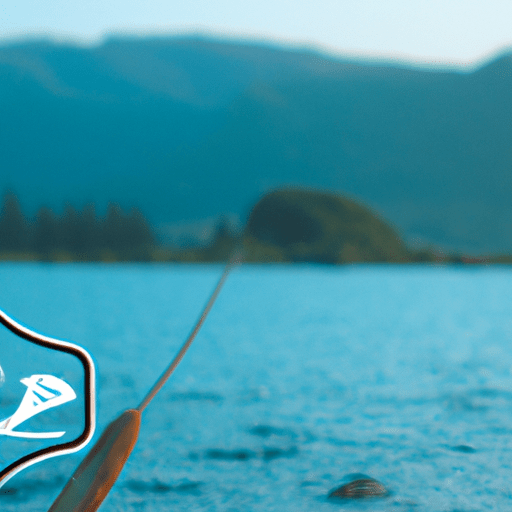“fishing: The Ultimate Guide for Everyone – From Beginner to Pro!”
If you’re looking to learn everything you need to know about fishing, whether you’re a beginner or a seasoned pro, then look no further! Check out Fishing eBook for all the tips and tricks you need to become a successful angler. Don’t wait any longer, start your fishing journey today!
Introduction
fishing is an enjoyable and rewarding activity that can be enjoyed by both beginners and seasoned pros alike. Whether you’re just starting out or have been fishing for years, there are a few basics that you should know. From the types of fishing gear you need to the different types of fish you can catch, this guide will provide you with everything you need to know about fishing. You’ll learn about the different types of fishing, the best places to fish, and the best techniques to use. With this knowledge, you’ll be able to enjoy a successful and enjoyable fishing experience.
The Basics of Fishing: What You Need to Know Before You Start
fishing is a great way to relax and enjoy the outdoors. Whether you’re a beginner or an experienced angler, there are a few basics you should know before you start. Here’s what you need to know to get started fishing.
1. Choose the right gear. Before you can start fishing, you’ll need to make sure you have the right gear. This includes a rod and reel, line, lures, and bait. Make sure you choose the right gear for the type of fish you’re trying to catch.
2. Learn the basics of casting. Casting is the most important skill you’ll need to learn when fishing. Make sure you practice casting in an open area before you head out on the water.
3. know the regulations. Before you start fishing, make sure you know the local regulations. This includes the size and type of fish you can keep, as well as the number of fish you can catch.
4. Be prepared. Make sure you have the right clothing and supplies before you head out. This includes a hat, sunscreen, and plenty of water.
5. Have patience. fishing can be a slow process, so make sure you have patience. Don’t get discouraged if you don’t catch anything right away.
fishing is a great way to relax and enjoy the outdoors. With a little bit of knowledge and the right gear, you can start fishing in no time. So grab your rod and reel and get out there!
How to Choose the Right Fishing Gear for Your Needs

fishing is a great way to relax and enjoy the outdoors. Whether you’re a beginner or an experienced angler, having the right fishing gear is essential for a successful and enjoyable fishing experience. With so many different types of fishing gear available, it can be difficult to know which items are best for your needs. Here are some tips to help you choose the right fishing gear for your needs.
1. Consider the type of fishing you’ll be doing. Different types of fishing require different types of gear. If you’re fishing in a lake or river, you’ll need a rod and reel, tackle, and bait. If you’re fishing in the ocean, you’ll need a heavier rod and reel, as well as a variety of lures and bait.
2. Think about the size of the fish you’ll be targeting. Different types of fish require different types of gear. If you’re targeting small fish, you’ll need a light rod and reel, as well as smaller lures and bait. If you’re targeting larger fish, you’ll need a heavier rod and reel, as well as larger lures and bait.
3. Consider the weather conditions. Different types of weather require different types of gear. If you’re fishing in cold weather, you’ll need a heavier rod and reel, as well as heavier lures and bait. If you’re fishing in hot weather, you’ll need a lighter rod and reel, as well as lighter lures and bait.
4. Choose the right type of line. Different types of line are designed for different types of fishing. If you’re fishing in a lake or river, you’ll need a monofilament line. If you’re fishing in the ocean, you’ll need a braided line.
5. Invest in quality gear. Quality fishing gear is essential for a successful and enjoyable fishing experience. Investing in quality gear will ensure that your gear lasts longer and performs better.
Choosing the right fishing gear for your needs can be a daunting task. However, by following these tips, you can ensure that you have the right gear for a successful and enjoyable fishing experience. So, get out there and start fishing!
Tips for Catching More Fish: Techniques for Beginners and Pros
fishing is a great way to relax and enjoy the outdoors. Whether you’re a beginner or a seasoned pro, there are always ways to improve your fishing skills and catch more fish. Here are some tips to help you become a better angler and increase your chances of success.
1. know Your Fish: Before you head out on the water, do some research on the type of fish you’re targeting. Learn about their habits, preferred habitats, and the best baits and lures to use. This will help you make informed decisions and increase your chances of success.
2. Use the Right Gear: Having the right gear is essential for successful fishing. Make sure you have the right rod, reel, line, and lures for the type of fish you’re targeting.
3. Be Patient: fishing is all about patience. Don’t be discouraged if you don’t catch anything right away. Take your time and enjoy the experience.
4. Change It Up: If you’re not having any luck, try changing up your bait or lure. Different types of bait and lures can attract different types of fish.
5. Location, Location, Location: Pay attention to where you’re fishing. Look for areas with structure, such as rocks, logs, or weeds, as these can be great spots for fish to hide.
6. Be Stealthy: Fish can be easily spooked, so try to be as quiet and stealthy as possible. Move slowly and avoid making loud noises.
7. Have Fun: Above all else, remember to have fun! fishing is a great way to relax and enjoy the outdoors. Don’t get too caught up in trying to catch the biggest fish. Enjoy the experience and the time spent with friends and family.
By following these tips, you’ll be well on your way to becoming a better angler and catching more fish. Good luck and happy fishing!
Understanding Different Types of Fishing: Freshwater vs. Saltwater
fishing is a beloved pastime for many, and it can be enjoyed in both freshwater and saltwater environments. Whether you’re a beginner or a seasoned angler, there’s something special about the thrill of the catch. But what’s the difference between freshwater and saltwater fishing?
Freshwater fishing is a great way to get started in the sport. It’s typically done in lakes, rivers, and streams, and the fish you’ll find in these environments are usually smaller than their saltwater counterparts. You’ll need to use lighter tackle and bait, and you’ll need to be aware of the local regulations.
Saltwater fishing is a bit more challenging, but it can be incredibly rewarding. You’ll find larger fish in the ocean, and you’ll need to use heavier tackle and bait. You’ll also need to be aware of the tides and the currents, as they can affect your success.
No matter which type of fishing you choose, it’s important to remember that it’s all about having fun. Whether you’re fishing in freshwater or saltwater, the experience of being out on the water and enjoying nature is something that can’t be replicated. So grab your rod and reel, and get out there and enjoy the thrill of the catch!
Q&A
Q1: What type of fishing rod should I use?
A1: The type of fishing rod you should use depends on the type of fish you are trying to catch and the type of water you are fishing in. For example, if you are fishing in a lake, you may want to use a spinning rod or a baitcasting rod. If you are fishing in a river, you may want to use a fly rod or a spinning rod. It is best to consult with a local fishing expert or sporting goods store to determine the best type of rod for your needs.
Q2: What type of bait should I use?
A2: The type of bait you should use depends on the type of fish you are trying to catch. Live bait such as worms, minnows, and crickets are often used for freshwater fishing. Artificial lures such as jigs, spinners, and crankbaits are often used for saltwater fishing. It is best to consult with a local fishing expert or sporting goods store to determine the best type of bait for your needs.
Q3: What type of fishing line should I use?
A3: The type of fishing line you should use depends on the type of fish you are trying to catch and the type of water you are fishing in. For example, if you are fishing in a lake, you may want to use a monofilament line or a braided line. If you are fishing in a river, you may want to use a fluorocarbon line or a monofilament line. It is best to consult with a local fishing expert or sporting goods store to determine the best type of line for your needs.
Q4: What safety precautions should I take when fishing?
A4: It is important to take safety precautions when fishing to ensure your safety and the safety of others. Always wear a life jacket when fishing from a boat or other watercraft. Be aware of your surroundings and the weather conditions. Make sure to check the local fishing regulations and obtain the necessary permits. Be sure to bring a first aid kit and a cell phone in case of an emergency.
Conclusion
fishing is a great way to relax and enjoy the outdoors. Whether you are a beginner or a seasoned pro, there are many things to consider when fishing. You need to know the basics of fishing, such as the types of fish, the best bait and tackle, and the best places to fish. You also need to be aware of the regulations and safety precautions that come with fishing. With the right knowledge and preparation, fishing can be a fun and rewarding experience for everyone.






